An interview with Lisa K., a team driver for Carolina Tank Lines- A Rinchem Company
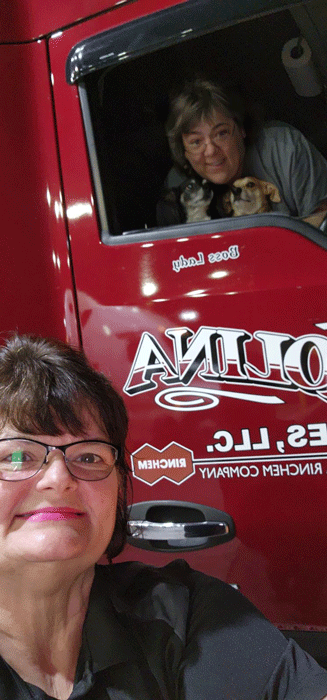
About The Interview:
In celebration of Driver Appreciation Month, Rinchem presents an exclusive interview shedding light on the remarkable stories of women who form a mere 10% of the United States' truck driving community. In this insightful conversation, we sit down with Lisa K, a seasoned team driver for Carolina Tank Lines, to learn about her journey in the male-dominated world of trucking.
Join us as we explore Lisa's perspective on being a woman in trucking, the changing landscape of the industry, and the invaluable advice for those considering a career on the open road. This Women in Trucking interview provides a unique glimpse into Lisa’s journey, emphasizing the importance of recognizing and appreciating the diverse talents that contribute to the trucking world's success.
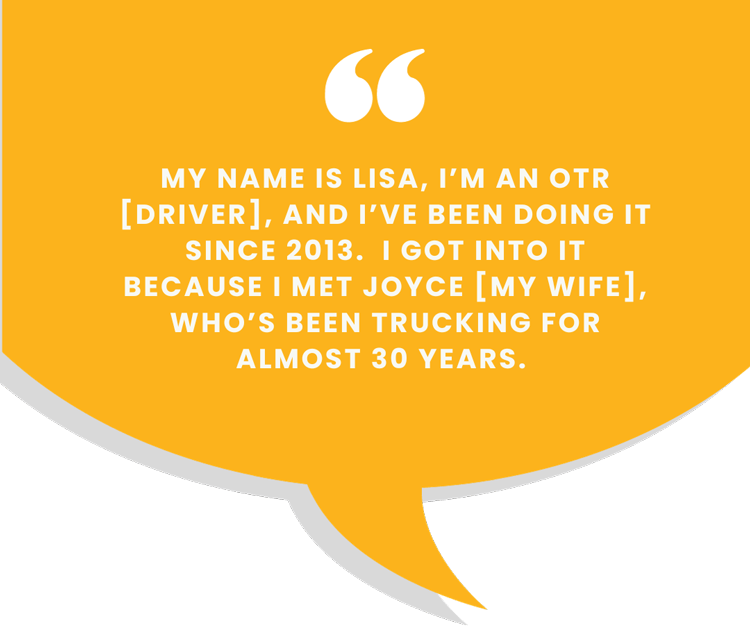
Question: Tell us a little about yourself, and how you got into trucking.
My name is Lisa, I’m OTR, and I’ve been doing it since 2013. And I got into it because I met Joyce [my wife], who’s been trucking for almost 30 years. I was in the social services industry, but she said trucking has been good to her and that you could make some money doing that. What I was doing as far as social service work you just can’t make any money doing that anymore, so I got into [trucking] because of her.
Question: How did you meet Joyce and become team drivers together?
She was actually my trainer before we got married, so we just hopped in the truck together and it kind of worked, and we got married shortly after that! After that she was like “Wouldn’t it be cool if we could do this together and make some money and be on the road together.” We’ve been a team since I started trucking in 2013.
Question: How do you prepare for life on the road?
Before we even get to the yard, we are stopping and blowing the truck out and wiping down the floors and cleaning everything up. This is where we eat, this is where we sleep. We don’t just have trash piled up and we probably should clean it better than we do sometimes. We have 2 dogs that go with us, so we constantly clean and make sure that it’s clean.
Question: Tell us about the dogs that drive with you.
We got 2 [dogs]. We used to have 3 that would ride with us. But the small little dachshund, about two years ago now, would get up and get ready with us when we were going, but all of a sudden when it was time to go he would go sit on his mama’s lap and not want to leave, so he stays home now. But we’ve got other two that ride with us, they sleep with us, we take them out when we’re stopped. They want to go! They get ready to go when we start packing our stuff and they’re sitting at the door waiting for us.
Question: What does a typical day on the road look like for you?
Our schedule will consist of me driving out and Joyce will put the food away and get everything set up back there [in the truck]. And I’ll drive while she sleeps, and she’ll get up maybe once or twice and make something to eat for me. Or I’m on break and I’ll fix something to eat. A lot of times when we take the dogs out, we’ll walk a little bit to stretch our legs, get them moving. And then the roles reverse. When we’re sitting a lot we do try to keep to that schedule, it is hard though. But a lot of time, again, we’ll go for a walk, take the dogs for a walk, or we’ll do stuff that we need to catch up on.
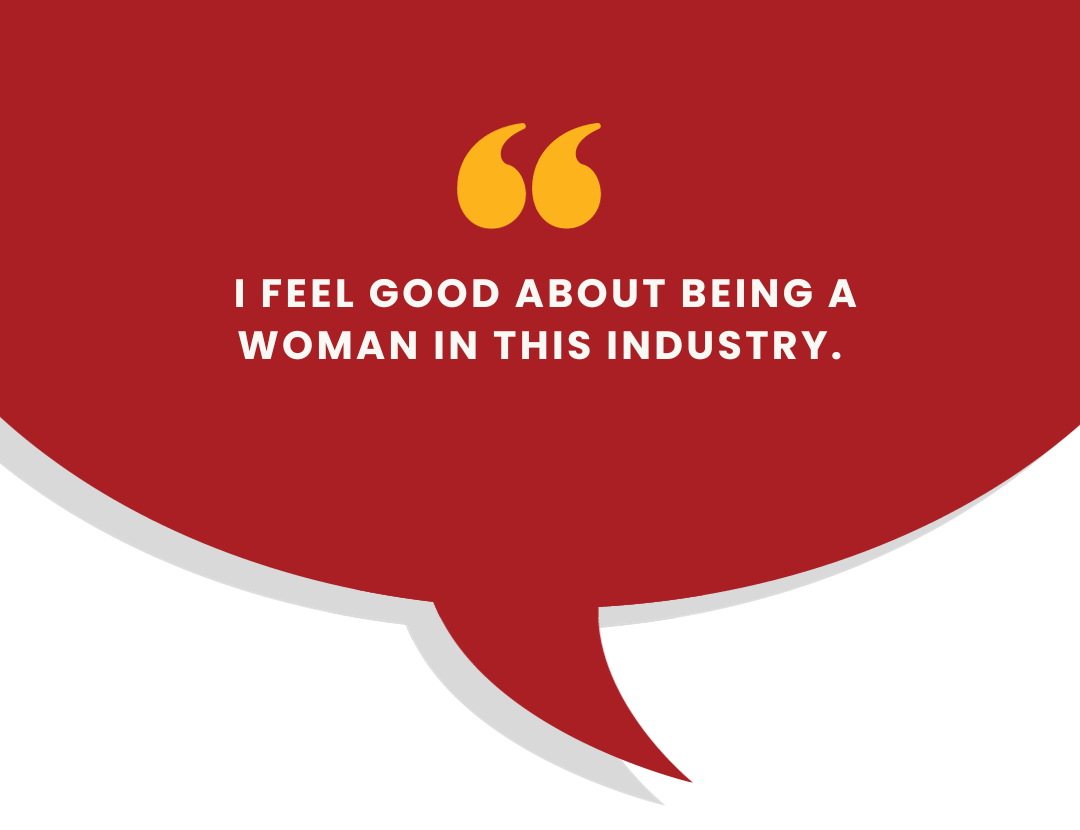
Question: What has your experience been working in a largely male-dominated industry?
Coming into this industry, I kind of went in not even thinking that women were the minority. Joyce told me some stories, but really not too many, but once I got into it, I did see how many more men are out here and how few and far between you see women. Trying to navigate a man’s world, or man’s industry, as years went on, [the] more I can see different things of how much this is a man’s industry - and I feel good about being a woman in this industry.
Question: How has the trucking industry changed since you began your careers?
As time goes on, working as a female in this male dominated industry, we do see more and more stuff at the truck stops for women. We do go in there and see a whole rack of razors and dude wipes, but they are starting to have little bags for women to carry their toothbrush and toothpaste and stuff like that. You know, we encounter a lot, like when we’re backing in, males do come out, not all of them, but they do come out and try to help you. “Do you need this backed”, or anything like that. Some of them are, well, I don’t want to say rude, but still kind of have that notion of “What are you doing out here? This isn’t for a female.” But not very many anymore. So, I think they’re appreciating that the women are out there doing the same thing they’re doing.
Question: Have you seen more women joining the industry in recent years?
Believe it or not, in the many years that I’ve been out here, I think there was 1 truck stop that I’ve actually seen 1 or 2 women [truckers] walking around. So, you know, stories of “there’s [women] in every truck stop”, …and it’s really not true. And [the stereotype] that it’s a dirty industry, and the bottom of the barrel—and that’s not true either. You’ve got to go to school and do so many hours [of training].
Question: What difficulties have you faced as a woman in trucking?
When I first started, a lot of times I would have an idea or a thought for the previous company that I worked at. If I had brought a suggestion to him, he would just kind of brush it off. We were told that he was very male chauvinist, that he thought that women shouldn’t be out here, women should be a 9-5 job, being at home with the kids. So, that was hard.
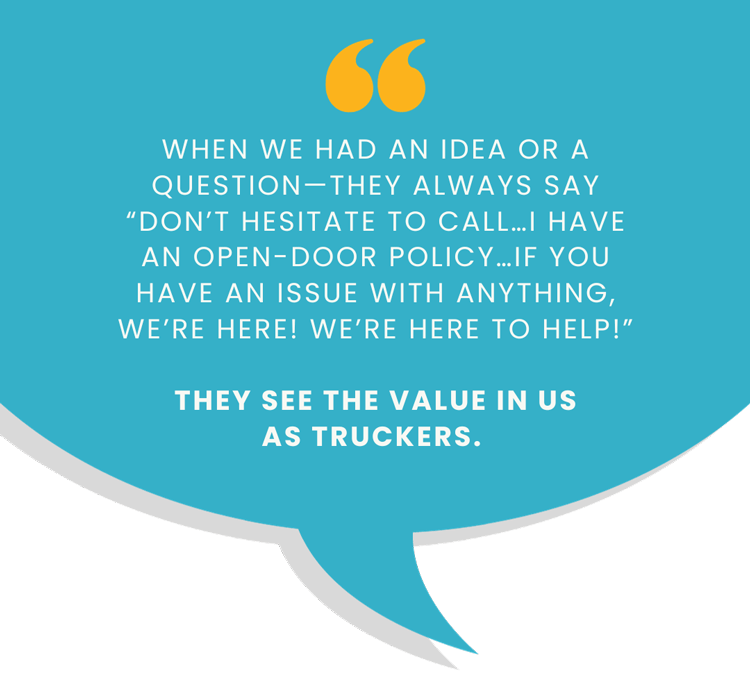
Question: What brought you to trucking with Carolina Tank Lines & Rinchem?
Originally, we were just having issues with that other company. At first, we were just looking for a company that was going to pay us either the same, or a little bit more. And we chose Carolina Tank Lines, but once we chose CTL, we kept seeing the high level of respect in the shop. How they go out of their way to do whatever you need. Your truck gets looked at every week. If you’ve got an issue, you can call them. You only got 1 day home, and they’re going to be on your truck and fixing it - they’re not going to tell you to get it fixed on the road. That was one of the great things that we liked.
But just the people, the respect that we were getting from the higher ups over there. When we had an idea or a question—they always say “Don’t hesitate to call…I have an open-door policy…if you have an issue with anything, we’re here! We’re here to help!” They see the value in us [women] as truckers. We’ve looked around and seen that we get paid very, very well at CTL and Rinchem for what we do. So, to me that shows respect from them that they know that essentially, we are out here day in and day out and sacrificing our home time to be out here.
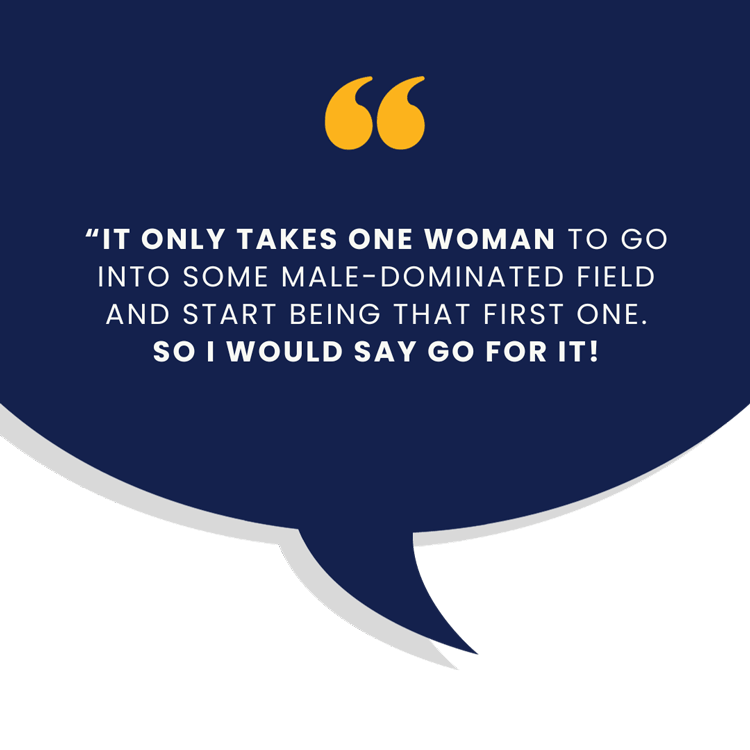
Question: What advice would you give to women looking to start their career in trucking?
I think if I was talking to any young woman or child or teenager that wanted to go into this industry I would tell them, hey whatever you put your mind that you can do. Put one step in front of the other. Don’t be pushed around. Don’t be bullied around if you have a question or concern. Again, take it to somebody. But this is a great industry for women, but it is also a lifestyle. Be prepared that you’re going to be gone for a week at least. Some companies I’ve heard that you’ve got to be out for at least a month. If you want to be a trucker, be a trucker! It’s a great industry. It took me a little bit to get used to. When I met Joyce, she could sleep going down the road hitting all these bumps, and I’d be awake going “Ah, I can’t sleep!” But now all these years later it doesn’t bother me. It only takes one woman to go into some male [dominated field] and start being that first one. So I would say go for it!
Get more articles like this in your inbox
Sign up for our monthly newsletter
Find more articles


